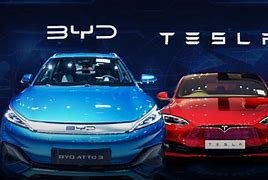
BYD posted a profit increase of more than 80% in its first set of annual profits after displacing Tesla as the world’s leading seller of electric automobiles.
Net earnings nearly doubled to 30 billion yuan ($4.2 billion) last year, up from 16.6 billion yuan ($2.3 billion) in 2022, the Shenzhen-based business said on Tuesday.
That’s despite BYD working in a “complex external environment,” it said, noting rising global prices and slowing GDP in most major nations.
BYD surpassed Tesla (TSLA) as the world’s top EV seller in the final three months of last year, culminating an incredible surge for the Warren Buffett-backed Chinese automaker. During that period, BYD sold 525,409 battery electric cars (BEVs), whereas Tesla sold 484,507.
In 2023, BYD sold a record 3.02 million vehicles worldwide, a 62% increase over 2022. This statistic includes 1.44 million plug-in hybrids that Tesla does not sell. Last year, Elon Musk’s company sold more BEVs than BYD, 1.8 million to 1.57 million.
Price War

BYD’s cars are less expensive than Tesla’s, allowing it to attract a broader variety of purchasers. Its entry-level model sells in China for little more than $10,000. The Model 3, Tesla’s cheapest vehicle, costs over $39,000.
However, increased competition and a vicious pricing war last year hurt the profit margins of several Chinese automakers, including BYD.
According to the Chinese Passenger automobile Association’s most current data, the country’s automobile sector would have an average profit margin of 5% in 2023, up from 5.7% in 2022 and 6.1% in 2021.
Despite thin margins, the pricing battle does not appear to be slowing. Earlier this month, BYD reduced the beginning price of its most cheap EV, the Seagull hatchback, by 5% to 69,800 yuan ($9,670). Other Chinese automakers, including as Geely, Chery, and XPeng Motors, have announced price decreases in recent weeks.










